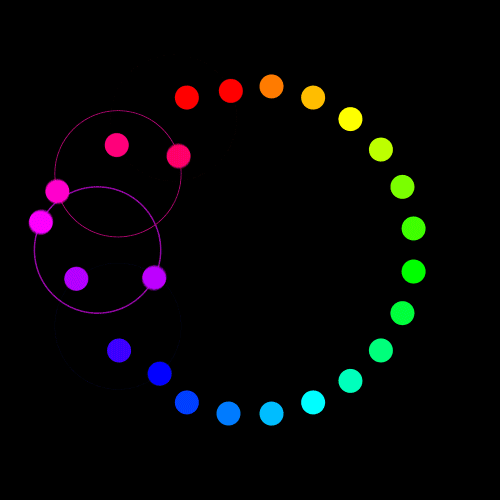
微信扫一扫,移动浏览光盘
简介
《语言学教程》(第三版)在修订版基础上听取广大师生的意见改编而成。包括语言学理论介绍,语音、词汇、句法、语义,语言和认知,语言和社会文化,语言和文学,语言和计算机,语言学和外语教学,语言学流流派等十二章。
本书有以下几大特点:权威性:名家撰著畅销近二十年,语言学教材经典之作、时代性:充分汲取国内外语言学研究的最新理论和成果、知识性:全面而系统阐述理论和应用语言学领域的内容、实用性:深入浅出脉络清晰,利于课上教学和课下自学、趣味性:生动插图与轻松例子合而为一,化枯燥为有趣、互动性:配有网络版,读者专家互动极大延伸求知空间。
本教材适合高校英语专业本科学生以及语言不相关专业学生和研究人员使用,另配有练习册和光盘及学习网站。
目录
chapter 1 invitations to linguistics.
1.1 why study language?
1.2 what is language?
1.3 design features of language
1.4 origin of language
1.5 functions of language
1.6 what is linguistics?
1.7 main branches of linguistics
1.8 macrolinguistics
1.9 important distinctions in linguistics further reading
chapter 2 speech sounds
2.1 how speech sounds are made?
2.2 consonants and vowels
2.3 from phonetics to phonology
2.4 phonological processes, phonological rules and distinctive features
2.5 suprasegmentals
further reading
chapter 3 lexicon
3.1 what is word?
3.2 the formation of word
.3.3 lexical change
further reading
chapter 4 from word to text
4.1 syntactic relations
4.2 grammatical construction and its constituents
4.3 syntactic function
4.4 category
4.5 phrase, clause and sentence
4.6 recursiveness
4.7 beyond the sentence
further reading
chapter 5 meaning
5.1 meanings of "meaning"
5.2 the referential theory
5.3 sense relations
5.4 componential analysis
5.5 sentence meaning
further reading
chapter 6 language and cognition
6.1 what is cognition?
6.2 what is psycholinguistics?
6.3 what is cognitive linguistics?
further reading
chapter 7 language, culture, and society
7.1 language and culture
7.2 language and society
7.3 cross-cultural communication..
7.4 summary
further reading
chapter 8 language in use
8.1 speech act theory
8.2 the theory of conversational implicature
8.3 post-gricean developments
further reading
chapter 9 language and literature
9.1 introduction
9.2 some general features of the literary language
9.3 the language in poetry
9.4 the language in fiction
9.5 the language in drama
9.6 the cognitive approach to literature
further reading
chapter 10 language and computer
10.0 introduction
10.1 computer-assisted language learning (call)
10.2 machine translation
10.3 corpus linguistics
10.4 computer mediated communication
further reading
chapter 11 linguistics and foreign language teaching
11.1 the relation between linguistics and language teaching
11.2 linguistics and language learning
11.3 linguistics and language teaching
11.4 linguistics and syllabus design
11.5 contrastive analysis and error analysis
11.6 corpus linguistics and language teaching
11.7 summary
further reading
chapter 12 theories and schools of modern linguistics
12.0 introduction
12.1 the prague school
12.2 the london school
12.3 american structuralism
12.4 transformational-generative grammar
12.5 revisionists or rebels?
further reading
bibliography
glossary and index...
1.1 why study language?
1.2 what is language?
1.3 design features of language
1.4 origin of language
1.5 functions of language
1.6 what is linguistics?
1.7 main branches of linguistics
1.8 macrolinguistics
1.9 important distinctions in linguistics further reading
chapter 2 speech sounds
2.1 how speech sounds are made?
2.2 consonants and vowels
2.3 from phonetics to phonology
2.4 phonological processes, phonological rules and distinctive features
2.5 suprasegmentals
further reading
chapter 3 lexicon
3.1 what is word?
3.2 the formation of word
.3.3 lexical change
further reading
chapter 4 from word to text
4.1 syntactic relations
4.2 grammatical construction and its constituents
4.3 syntactic function
4.4 category
4.5 phrase, clause and sentence
4.6 recursiveness
4.7 beyond the sentence
further reading
chapter 5 meaning
5.1 meanings of "meaning"
5.2 the referential theory
5.3 sense relations
5.4 componential analysis
5.5 sentence meaning
further reading
chapter 6 language and cognition
6.1 what is cognition?
6.2 what is psycholinguistics?
6.3 what is cognitive linguistics?
further reading
chapter 7 language, culture, and society
7.1 language and culture
7.2 language and society
7.3 cross-cultural communication..
7.4 summary
further reading
chapter 8 language in use
8.1 speech act theory
8.2 the theory of conversational implicature
8.3 post-gricean developments
further reading
chapter 9 language and literature
9.1 introduction
9.2 some general features of the literary language
9.3 the language in poetry
9.4 the language in fiction
9.5 the language in drama
9.6 the cognitive approach to literature
further reading
chapter 10 language and computer
10.0 introduction
10.1 computer-assisted language learning (call)
10.2 machine translation
10.3 corpus linguistics
10.4 computer mediated communication
further reading
chapter 11 linguistics and foreign language teaching
11.1 the relation between linguistics and language teaching
11.2 linguistics and language learning
11.3 linguistics and language teaching
11.4 linguistics and syllabus design
11.5 contrastive analysis and error analysis
11.6 corpus linguistics and language teaching
11.7 summary
further reading
chapter 12 theories and schools of modern linguistics
12.0 introduction
12.1 the prague school
12.2 the london school
12.3 american structuralism
12.4 transformational-generative grammar
12.5 revisionists or rebels?
further reading
bibliography
glossary and index...
Linguistics a course book
- 名称
- 类型
- 大小
光盘服务联系方式: 020-38250260 客服QQ:4006604884
云图客服:
用户发送的提问,这种方式就需要有位在线客服来回答用户的问题,这种 就属于对话式的,问题是这种提问是否需要用户登录才能提问
Video Player
×
Audio Player
×
pdf Player
×


